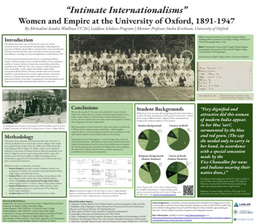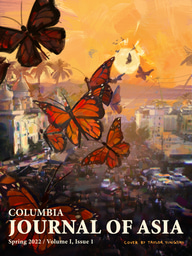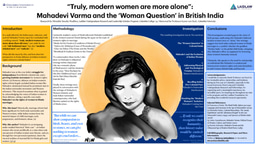Of 'Representative Women' and 'Women Representatives': Debating Women's Reservations in India's Last Colonial Constitution, 1930-35
Abstract (presented at the 2023 Columbia Undergraduate Research Symposium):
Early twentieth-century British India saw a diverse cast of activists lay claim to rights, from nationalists demanding autonomy to minorities seeking representation. In response, Britain convened a series of reform committees, culminating in the Government of India Act of 1935, India’s last colonial constitution, which created assemblies for Indians to participate in domestic policy. This project traces how Indian women’s organizations engaged in these debates, focusing on the issue of reservations—i.e., reserved assembly seats for female candidates.
Reservations split the women's movement. Proponents argued they advanced feminist social reform; opponents claimed they undermined national unity. How did leaders of the three main women’s organizations—the All-India Women’s Conference, National Council of Women in India, and Women’s India Association—understand the role of ‘women representatives’? What was the tenor of their relationships with each other, and with the British feminists and Indian nationalists they allied with to advance their positions on reservations? To address these questions, the project draws on these women’s correspondence in British and Indian archives, triangulated with committee records. It reveals the need to treat these women not as a nationalistic monolith, but as political agents negotiating representation within the power structures of empire. In doing so, it challenges the mainstream view that Indian women, “infected… with the spirit of national unity,” never sought reservations, revealing how feminists were pressured into abandoning their original vision of representation, and how those who refused were sidelined as ‘unrepresentative’—generating controversies over women's reservations that continue in the present-day.
More information here and/or via email.





Please sign in
If you are a registered user on Laidlaw Scholars Network, please sign in